Birmingham New Street station gets new concourse
- Published
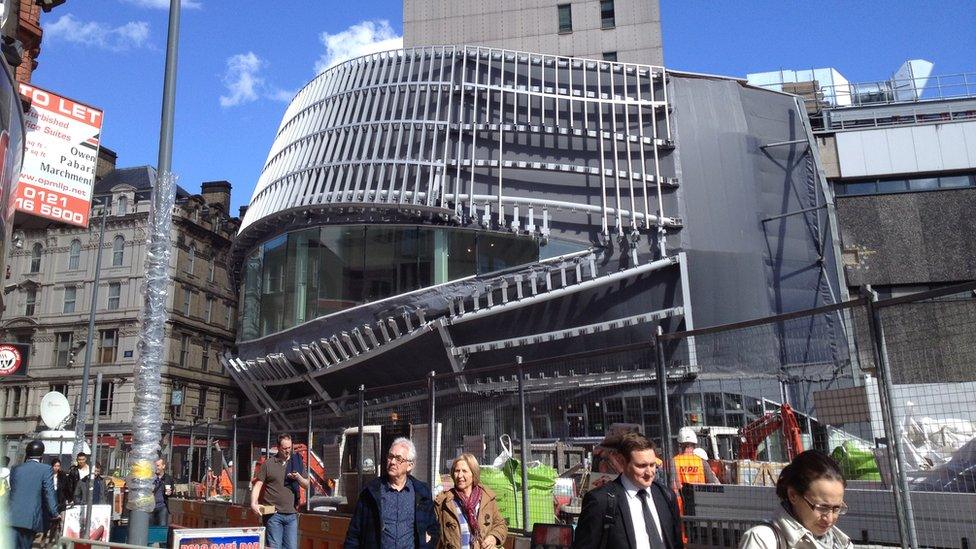
The first half of the £598m redevelopment of Birmingham's New Street Station opens to the public at 07:30 BST on Sunday. Half of the new concourse and three new entrances will open, with the old concourse and existing entrances closing at midnight on Saturday.
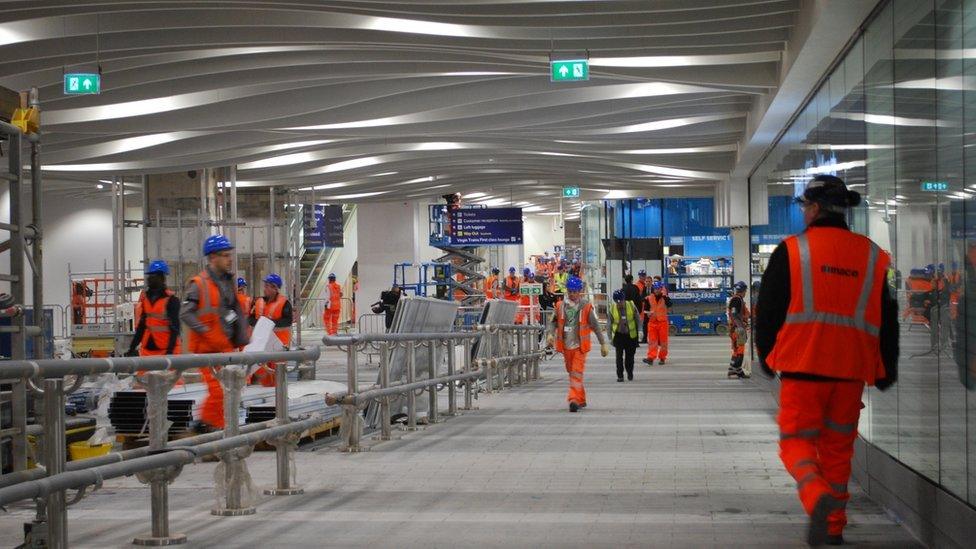
The existing New Street station had long been criticised for being dark and gloomy and having no natural light. The transformation was first announced in 2003, with the design for the redeveloped station unveiled three years later. Building work on the new entrance began in 2011.
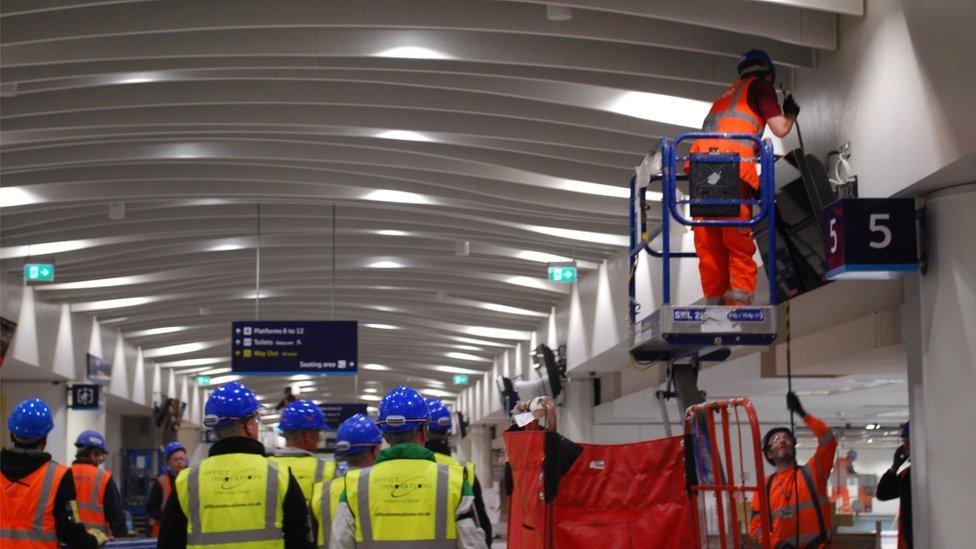
Network Rail said the new concourse has three times more space than the old one, which had also been criticised for its overcrowding.
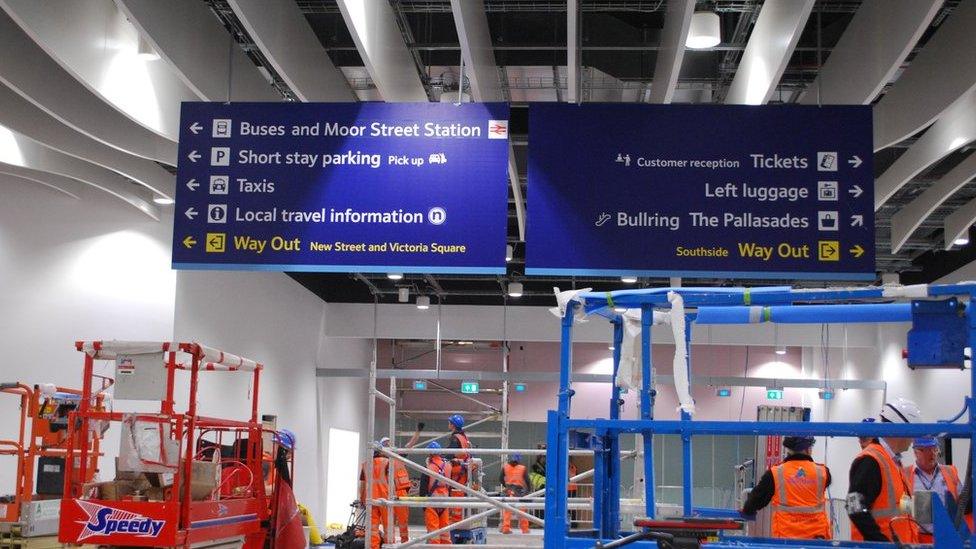
The original Birmingham New Street station opened on 1 June 1854 but was demolished in 1964, during a period in which much of the city centre was rebuilt. The current station opened three years later. Building work on the new New Street is expected to be completed in 2015.
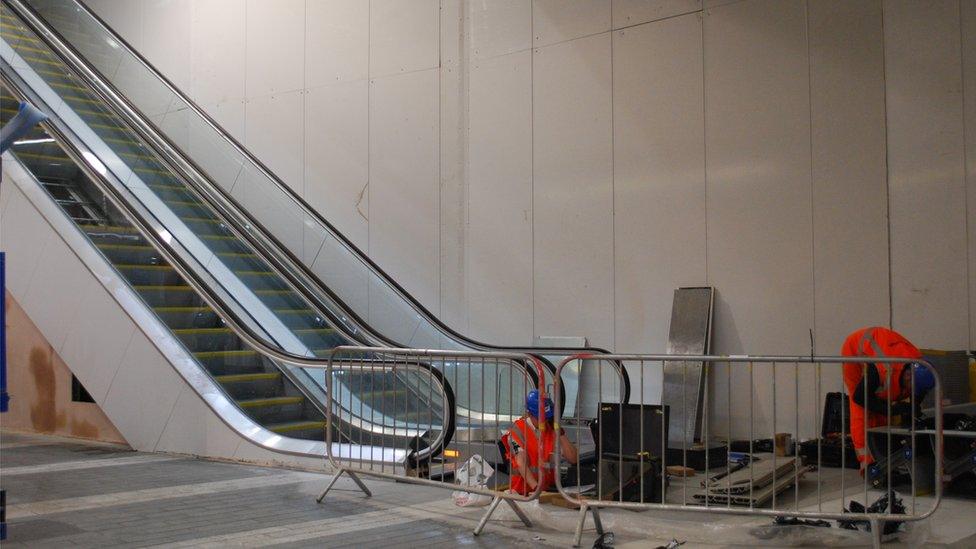
The neighbouring Pallasades shopping centre will eventually become a "premium fashion and lifestyle" space called Grand Central Birmingham, which will also incorporate a four-storey John Lewis store. Two new escalators will join the station to the shopping centre. Grand Central Birmingham is due to open in Autumn 2014 and will provide 200,000 sq ft of retail space as part of phase two of the project.
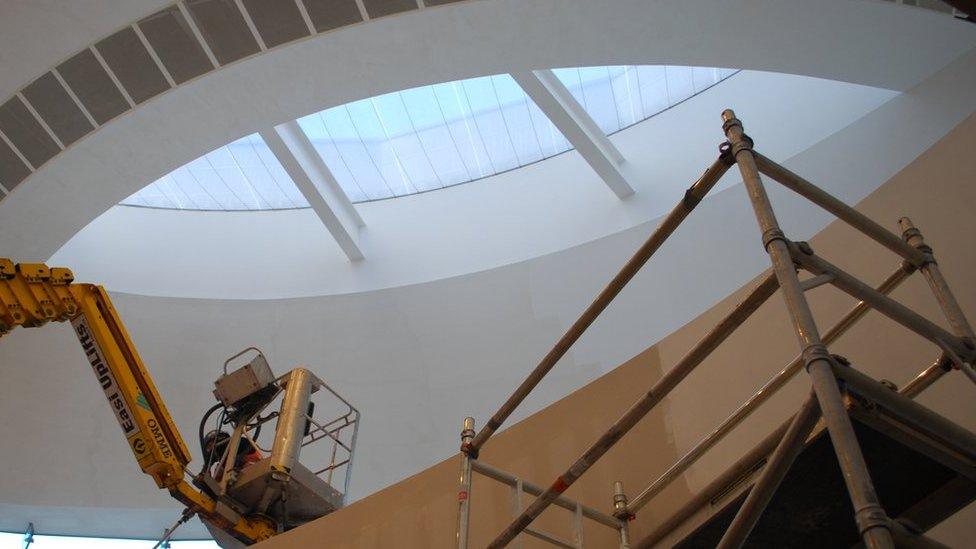
By the end of phase two in 2015, at the three main entrances, including Navigation Street, there will be large "media eyes" displaying information. Mick Miller, senior sponsor at Network Rail, said: "We’re looking at a mix of public information, local and national information and also advertising."
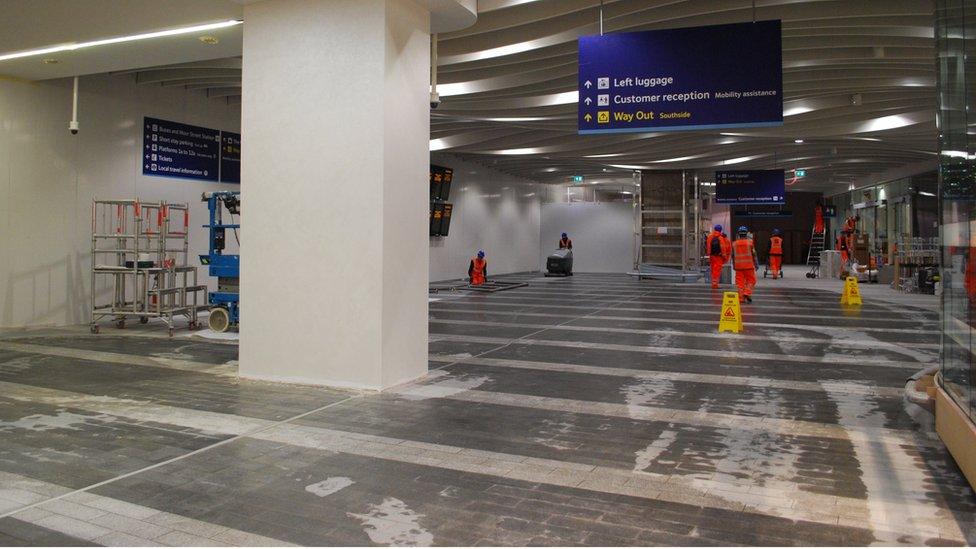
The first half of the new concourse will allow passengers to walk across the station 24 hours a day without a ticket. Mr Miller from Network Rail said: "This is what we call the North South Street... It will open up the city centre whereas previously you had to walk around the station to get to from the north side to the south side."
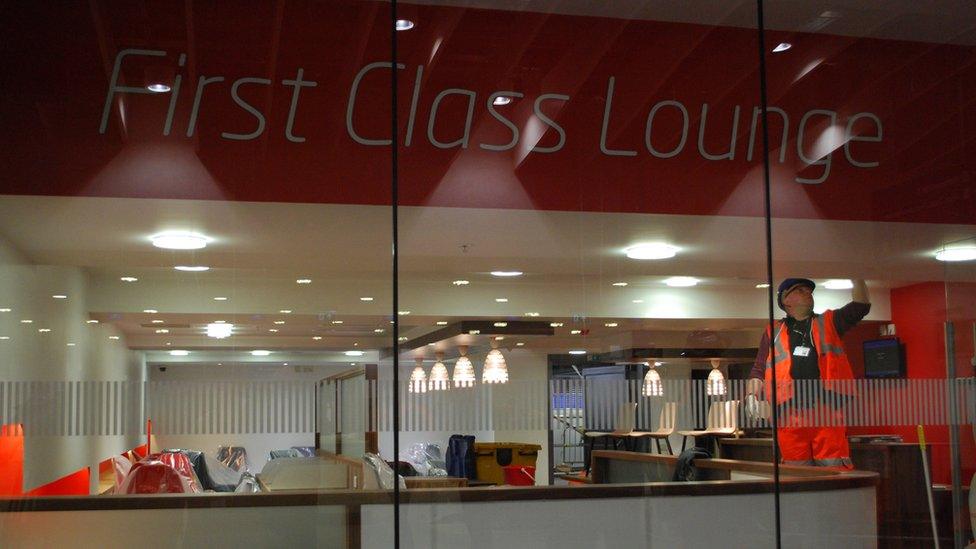
New Street Station is used by 140,000 passengers a day, more than double the number it was designed for in the 1960s. Network Rail said the improved station will be "very green", generating its own electricity and harvesting rainwater. The signage has been carefully reviewed by 250 members of the public.
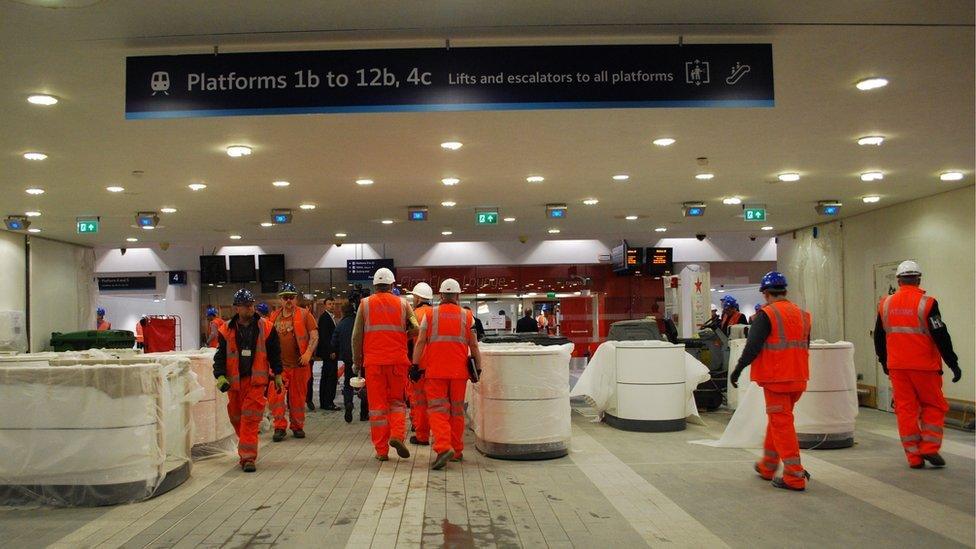
Automatic ticket gates will eventually be used to access the "paid" areas of the station, with "all of the modern technology cards" set to be accepted.
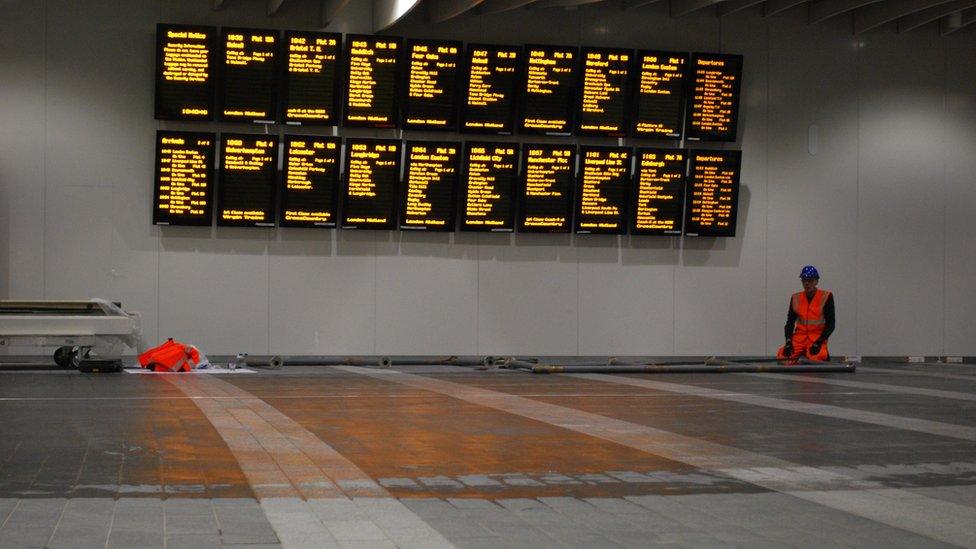
There will be a "drop and go" facility outside the new Hill Street entrance. Cars will be able to come in by that entrance and go out through nearby Navigation Street. They will be able to drop off or access a short-term car park for 20 minutes and a long stay car park, run by NCP, will eventually open towards the end of 2014.
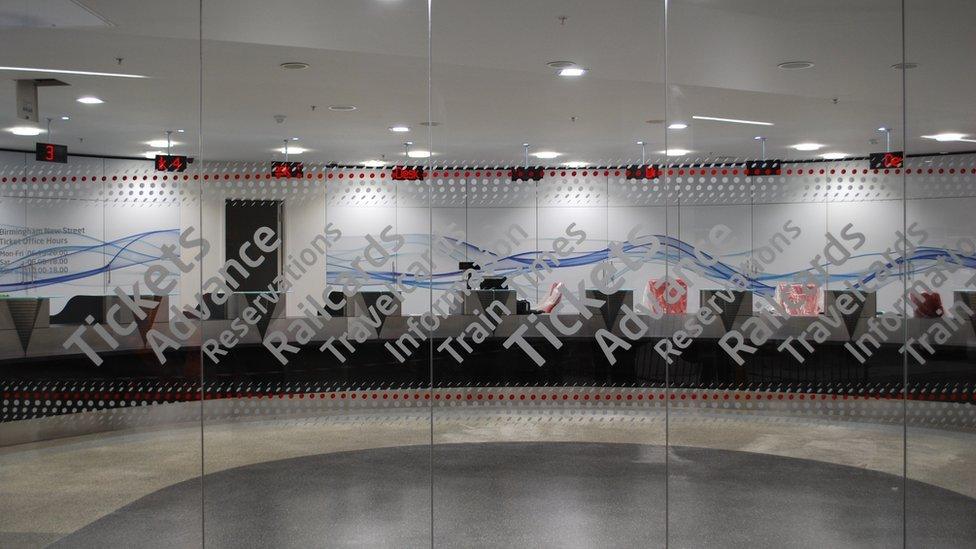
Network Rail said it has taken a “21st Century approach to ticketing”. Mick Miller said: “We’ve gone for a very modernistic approach." He said there was no glazing between the customer and seller and there will be ticketed queuing system in place.
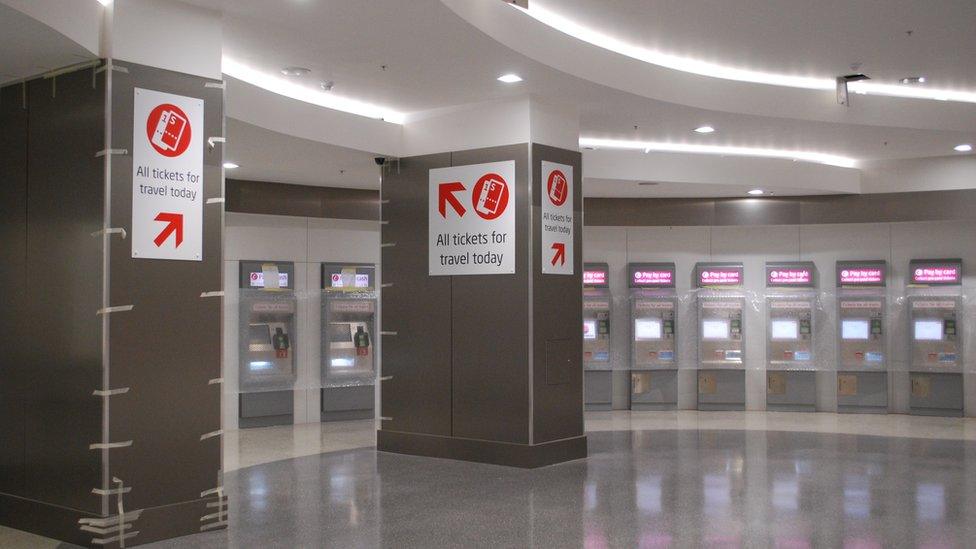
Floor walkers will be operating in the ticket area to assist customers. There are currently only nine fast ticket machines at the station, but there will eventually be 17. "Travel champions" will work in the station to help with any queries.
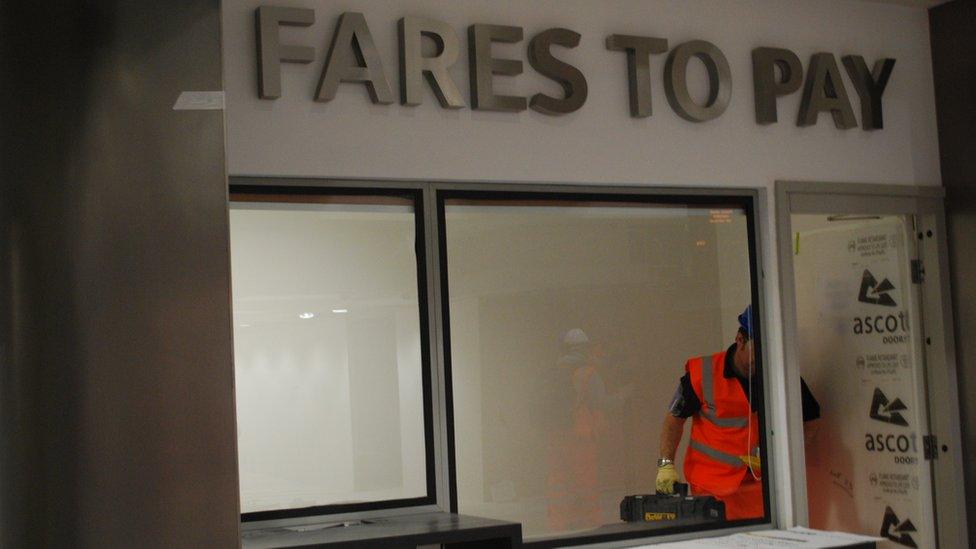
Richard Thorpe, director for the Mace group, said: “I think the passengers' expectations and experience in here will be of a bright, airy, and inviting concourse against the backdrop of a very dingy environment that they’ve been using since the 1960s."
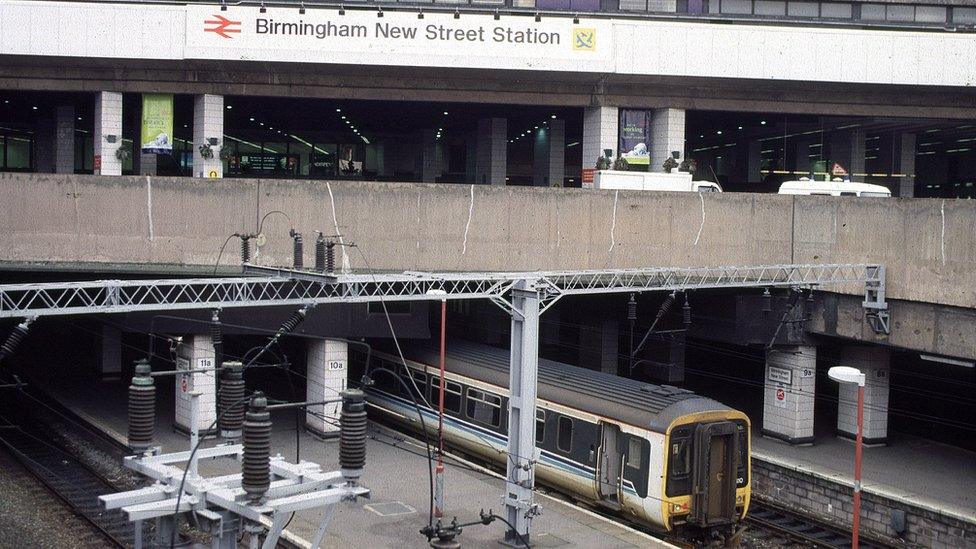
The current station, pictured in 1998, was voted the worst station in the UK in a BBC poll in 2003, while in the same year Country Life magazine readers named it one of Britain's top 10 eyesores.
- Published15 January 2013
- Published4 September 2012